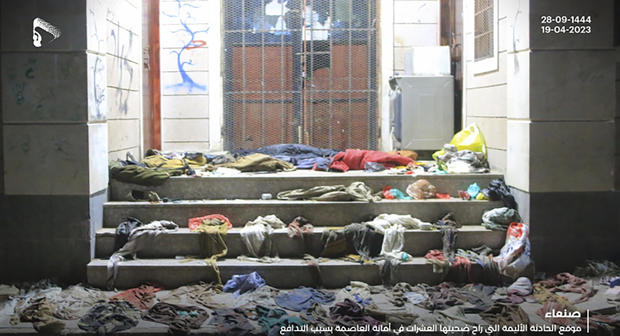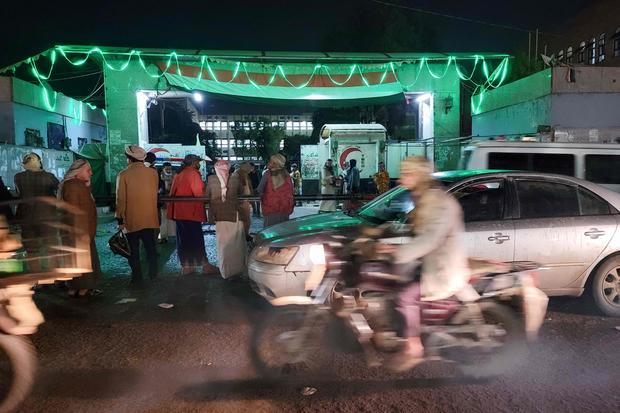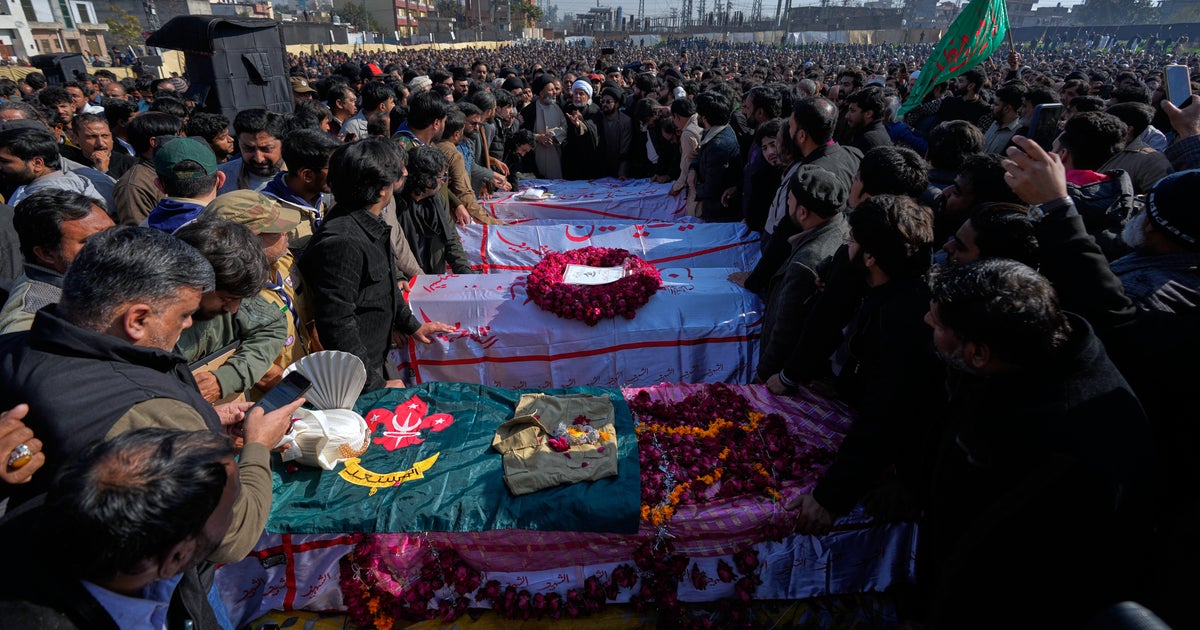Stampede in Yemen leaves scores dead as gunfire spooks crowd waiting for small Ramadan cash handouts
Sanaa, Yemen — A crowd apparently panicked by gunfire and an electrical explosion stampeded at an event to distribute financial aid during the Muslim holy month of Ramadan in Yemen's capital late Wednesday, killing about 80 people and injuring scores more, according to witnesses and officials from the Houthi rebel group which controls the city. It was the deadliest incident in Yemen in years that was not related directly to the country's long-running civil war, and it came ahead of the Muslim holiday of Eid al-Fitr, which marks the end of Ramadan later this week.
Armed Houthis fired into the air in an attempt at crowd control, apparently striking an electrical wire and causing it to explode, according to two witnesses, Abdel-Rahman Ahmed and Yahia Mohsen. That sparked a panic, and people, including many women and children, began stampeding, they said.
Motaher al-Marouni, a senior health official, said Thursday that at least 87 people were killed, according to the rebels' Al-Masirah satellite TV channel, but that figure was later retracted amid conflicting information from Houthi officials. The head of the Houthi-controlled Ministry of Health was quoted as saying at least 80 were dead, and al-Marouni had earlier put the death toll at 78. At least 73 others were injured and taken to a Sanaa hospital, according to the hospital's deputy director Hamdan Bagheri.
Video posted on social media showed dozens of bodies, some motionless, and others screaming as people tried to help. Separate video of the aftermath released by Houthi officials showed bloodstains, shoes and victims' clothing scattered on the ground. Investigators were seen examining the area.
The crush took place in the Old City in the center of Sanaa, where hundreds of poor people had gathered for a charity event organized by merchants, according to the Houthi-run Interior Ministry. People had gathered to receive less than $10 each from a charity funded by local businessmen, witnesses said. Wealthy people and businessmen often hand out cash and food, especially to the poor, during Ramadan.
Interior Ministry spokesperson Brig. Abdel-Khaleq al-Aghri, blamed the crush on the "random distribution" of funds without coordination with local authorities.
The political leader of the Houthi rebels, who have controlled much of the country since a civil war broke out almost a decade ago, Prime Minister Abdulaziz bin Habtour, said the group's interior, health and prosecutorial authorities would "examine this unfortunate event to find a serious solution for this to never happen again."
"We are experiencing a great tragedy, a large number of our citizens have died during this stampede," Habtour told people at the scene on Wednesday evening.
The rebels quickly sealed off a school where the event was being held and barred people, including journalists, from approaching. The Interior Ministry said it had detained two organizers and confirmed that an investigation was under way.
The Houthis said they would pay some $2,000 in compensation to each family who lost a relative, while the injured would get around $400.
Yemen's capital has been under the control of the Iranian-backed Houthis since they descended from their northern stronghold in 2014 and removed the internationally recognized government. That prompted a Saudi-led coalition to intervene in 2015 to try to restore the government.
The conflict has turned in recent years into a proxy war between regional powers Saudi Arabia and Iran, killing more than 150,000 people, including fighters and civilians and creating one of the world's worst humanitarian disasters. That war has continued despite an attempt at a ceasefire late last year and a recent, nascent thaw in diplomatic relations between the Saudis and Iranians.
The conflict has left more than two-thirds of Yemen's population — or about 21 million people — in need of help and protection, according to the U.N. Office for the Coordination of Humanitarian Affairs. Among those in need, more than 17 million are considered particularly vulnerable.
In February the United Nations said it had raised only $1.2 billion out of a target of $4.3 billion at a conference aimed at generating funds to ease the humanitarian crisis.





